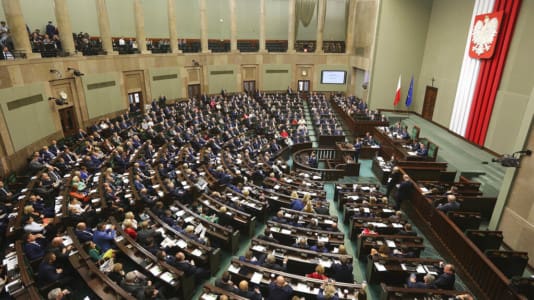Poland’s agriculture minister, Robert Telus, has admitted that there are differences of view between the five countries neighboring Ukraine over the embargo on Ukrainian grain.
The five countries — Poland, Slovakia, Bulgaria, Romania and Hungary — were all in attendance at the informal summit of agriculture ministers in Cordoba, Spain. They have managed to agree that any EU list of products to be put under an embargo should be “flexible” so that imports can be added or deleted according to changing market conditions.
The problem with “flexibility” is that it means there is no solidarity over an iron-cast embargo on four products: wheat, corn, sunflower seed, and rapeseed. According to Telus, there is a problem with Bulgaria, which wants to stop the embargo on sunflower seeds but would like to add powdered milk. Poland, on the other hand, would like to add raspberries and honey.
Moreover, it is not clear if all five states will introduce unilateral embargoes, such as those threatened by Poland and Hungary, if the European Commission should reject the extension of the embargo beyond Sept. 15. Telus admitted that only Hungary, apart from Poland, was committed to imposing such a ban, while Slovakia was wavering.
Telus confirmed that Poland will not succumb to threats coming from Kyiv of taking the issue to arbitration or any action by the WTO; he also said that he did not find any hardline opposition among agriculture ministers for the extension of the embargo. Nevertheless, he feared that the EU commission would, for political reasons, refuse to back the continuation of the embargo. He said that this may be because Commission President Ursula von der Leyen has promised Ukraine the embargo would be lifted.
Poland’s commercial radio station RMF FM asked the former agriculture minister for his views on the subject of the embargo. Jan Krzysztof Ardanowski is convinced that Poland will not lift the embargo on Sept. 15 and that only transit of Ukrainian grain will be allowed. He added that “it is inconceivable that we should return to what happened last year when a massive influx of Ukrainian grain destabilized our market.”
He also said that Ukraine has for years been wanting to enter the EU market with its products, but for years, this was limited by quotas and duties to protect EU’s farmers. However, “now they want to use the fact that the EU has become much more open to helping Ukraine to realize their objective.”
Ardanowski believes that if Ukraine is successful, then “many small farms in the EU will collapse.” He added that Ukraine should be helped by both Poland and the EU with exporting grain to Africa and the Middle East.





